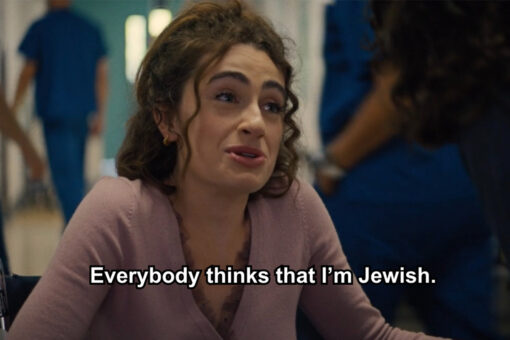Editorial Note: Spoilers ahead for season two of “Nobody Wants This.” Additionally, this article originally ran on the Jewish TV Club Substack.
One of the most Jewish (and most popular) TV shows in recent memory is back! Season two of “Nobody Wants This” dropped on Netflix yesterday. And while there is less “Judaism 101,” as critic Esther Zuckerman calls it, this season, there are still plenty of claims about Judaism and Jewish culture to fact-check. As my last very in-depth fact-check found, “Nobody Wants This” season one did a relatively authentic job of portraying Judaism. (With the caveat that it relied on stereotypes about Jewish women for conflict and comedy.)
So how does season two stack up? Here’s what I found.
Episode 1 (Dinner Party)
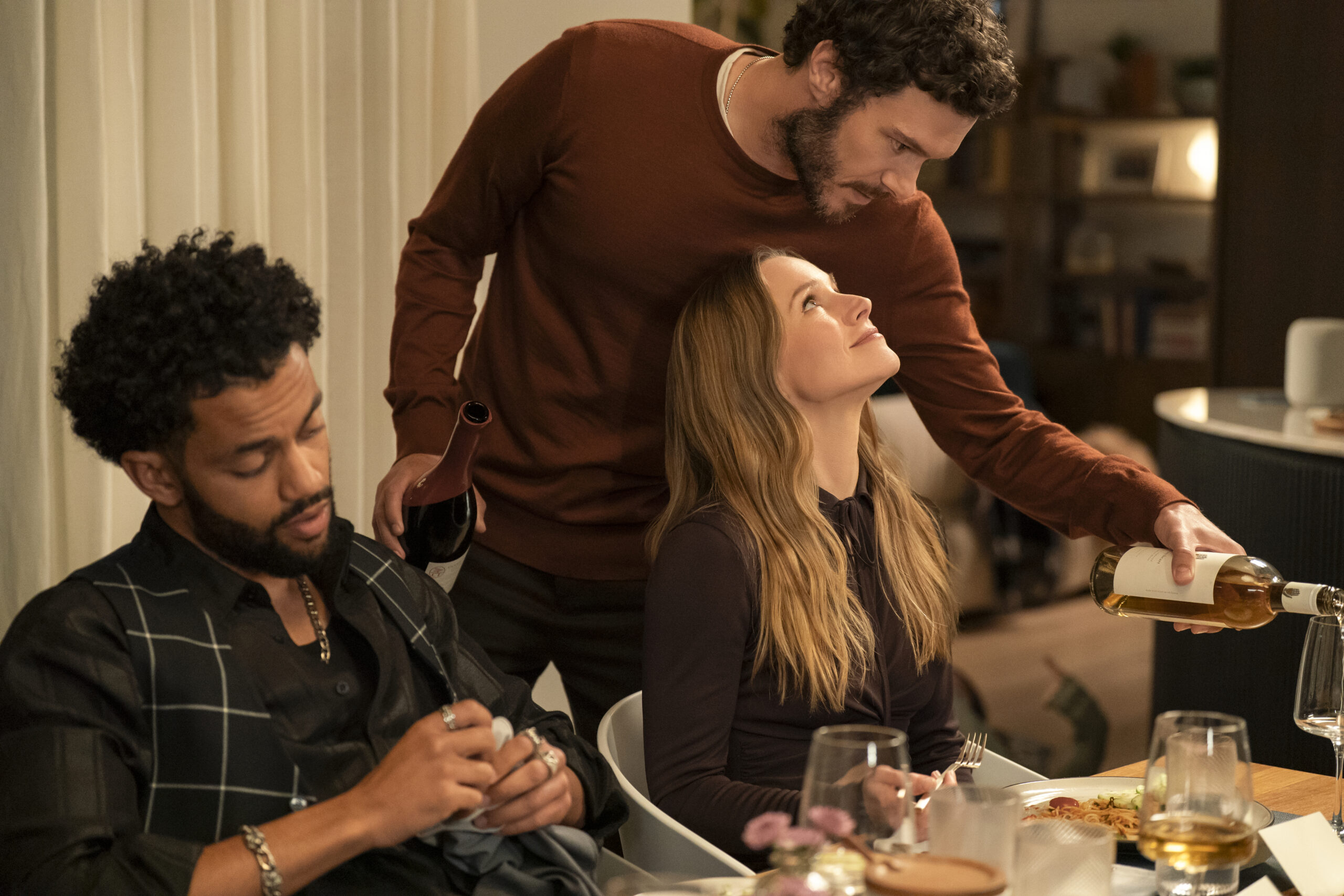
Claim #1: The rabbi hiring process is conducted by a synagogue’s board.
Context: At the end of episode one, Noah learns he’s been passed over for the Temple Chai senior rabbi job because, as Rabbi Cohen says, “we can’t have a whole congregation waiting to see if your girlfriend is going to convert.” Noah’s protestations include that there should be “a whole process with the board.”
Verdict: Though not all synagogues are the same, generally this is true. Synagogues, like most institutions, by and large will have a board of directors to guide their operations and finances. Thus, the process of hiring a new rabbi would fall under their purview.
Episode 2 (Leave It at the Tree)

Claim #2: “Leaving it at the tree” is not a Jewish tradition.
Context: Before Noah heads into a Matzah Ballers game, he asks Joanne to “leave it at the tree.” Together, Noah and Joanne touch a tree trunk and relieve themselves of their daily frustrations and angst in hopes it’ll make Noah play better. Later in the episode, Joanne brings Bina to the tree to engage in “the ancient and beautiful Jewish tradition of leaving it at the tree.” Noah follows them and says, “Jo, it’s not a Jewish thing. It’s just a team tradition. Shaq did it.”
Verdict: True! “Leaving it at the tree” is not a Jewish tradition. However, Jews do have an entire holiday celebrating trees called Tu Bishvat. (Remember that for later.) Double however, there is a Jewish tradition called hitbodedut which involves internally screaming in nature as a means for conversing with God. “Leaving it at the tree” isn’t quite hitbodedut, but it’s close!
Episode 3 (The Unethical Therapist)

Claim #3: Jews say the hamotzi at Shabbat dinner.
Context: This episode begins with Joanne joining the Roklovs for Shabbat dinner. As the scene fades in, viewers can hear the family saying, “Baruch ata Adonai Eloheinu melech ha’olam hamotzi lechem min ha’aretz.”
Verdict: This is correct. The hamotzi, as the blessing over the bread is known, is recited anytime a Jewish person eats bread. (If that person is halachically observant, that is.) On Friday nights, the hamotzi has a special place during Shabbat dinner. Though different Jewish communities order the Shabbat rituals differently, challah is always eaten after the hamotzi.
Claim #4: “Good Shabbos” is a Shabbat greeting.
Context: The Roklovs say “Good Shabbos” to one another after the hamotzi.
Verdict: For an Ashkenazi Jewish family like the Roklovs, this is true! The Yiddish Shabbat greeting is “Gut Shabbos,” which in English has been blended into “Good Shabbos.” That said, there are plenty of other Shabbat felicitations in Jewish languages from Hebrew to Ladino and beyond.
Claim #5: There are no phones at the Shabbat dinner table.
Context: Joanne pulls out her phone during dinner and Bina chides her to put it away.
Verdict: Correct! Jewish law forbids work, and electricity by extension, once Shabbat begins. Though not all Jews are shomer Shabbat (halachically observant of the Sabbath), it’s just common courtesy not to use your phone at the dinner table, Shabbat or otherwise.
Claim #6: It’s a big deal in the Jewish community to be on the cover of the Jewish Journal.
Context: Noah kvetches to Joanne that Temple Chai’s new rabbi, known as Big Noah, is a big macher. He cites the fact that Big Noah was on the cover of the Jewish Journal to prove his point.
Verdict: Absolutely no shade to the Jewish Journal, but this isn’t really true. A quick peruse of the Jewish Journal’s print edition archive reveals that they don’t even really have cover models. Even so, the Jewish Journal is based in Los Angeles and covers the greater LA Jewish community, so the locale is correct.
Claim #7: “The Golden Rule” comes from the Talmud, in which the Jewish sage Hillel says, “That which is hateful to you, do not do to your fellow human.”
Context: Noah hops on the podcast to answer a listener question about ghosting and responds by referencing Hillel, The Talmud and The Golden Rule.
Verdict: Ding ding ding! Correct.
Claim #8: Babies are a blessing.
Context: Bina tells Sasha this while trying to convince him and Esther to have another child.
Verdict: This line of thought is probably true in most, if not all, cultures and religions. In Judaism, the Torah commands us to “be fruitful and multiply,” which many interpret as a directive to have children. There are also many Jewish traditions centered around babies and children, including circumcision, naming ceremonies and the blessing over the children on Shabbat.
Claim #9: Gossiping is against Jewish law.
Context: Noah taught Joanne about this last season. She reminds him of this when Noah says he secretly enjoyed telling everyone that Dr. Andy is/was Morgan’s therapist.
Verdict: Yes, gossiping is against halacha. The prohibition against lashon hara, or evil speech, covers speech that is true but damaging to the person it’s about. In other words, gossip.
Claim #10: Parshat Beshalach covers the Israelites leaving Egypt and wandering through the desert.
Context: Noah gives a d’var Torah at Temple Chai on this Torah position. He announces it’s his last sermon as he is leaving the synagogue.
Verdict: True! Click here for a full summary of Parshat Beshalach.
Episode 4 (Valentine’s Day)

There is nothing Jewish to fact-check in this episode!
Episode 5 (Abby Loves Smoothies)
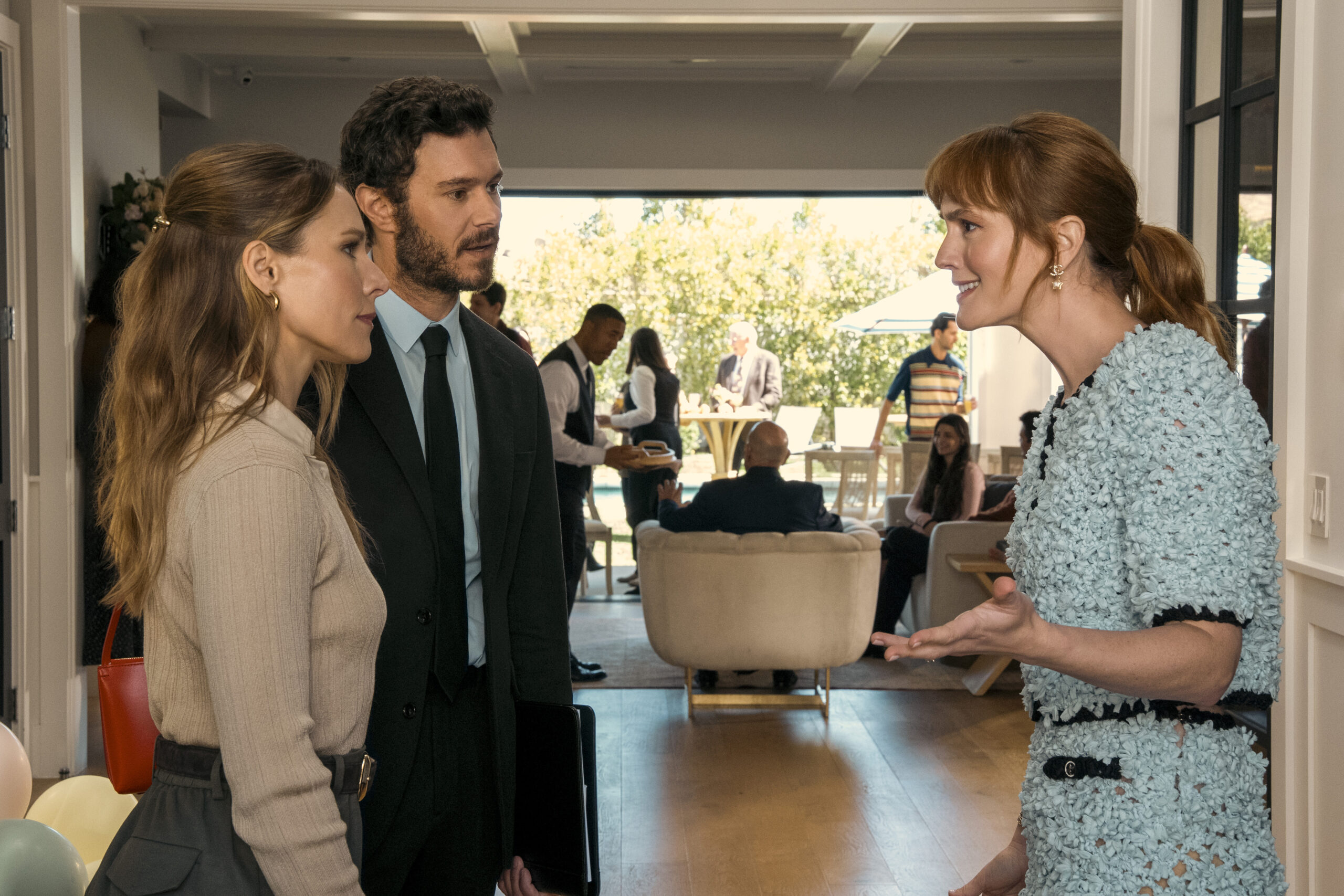
Claim #11: A brit bat is a Jewish baby naming ceremony.
Context: Noah’s first job after leaving Temple Chai is performing a baby naming ceremony for Joanne’s middle school nemesis, Abby Kaplan. “Is it like a Jewish baptism?” Joanne asks when learning about it. Noah responds that a brit bat is a ritual where Jewish parents reveal the name of their child and its significance.
Verdict: Correct! While a brit milah/bris/circumcision is a ceremony welcoming Jewish baby boys, a brit bat (“covenant of the daughter”) or simchat bat (“joy of the daughter”) is a ceremony for Jewish girls. During it, a baby’s name is often revealed. There are also a mix of other ways to name a Jewish baby naming ceremony, which you can read about here.
Claim #12: Rabbis kids don’t eat bacon, don’t have Santa and pray for fun.
Context: This line comes from Morgan about Joanne and Noah’s potential kids. Yes, it’s written as a joke, but I’m investigating all claims here.
Verdict: No Jewish family is the same, so any blanket statement about all rabbis families will be false. There are probably a great deal of rabbis kids who grow up in a household where they don’t eat pork bacon (though turkey bacon does exist…) and don’t observe Christmas. But there are likely also non-Orthodox rabbis whose homes aren’t completely kosher and include some elements of Christmas. (I’m not going to address the “praying for fun” thing because I mean, come on.)
Claim #13: Ashkenazi Jewish naming traditions dictate that babies are named in honor of dead relatives.
Context: At the baby naming ceremony, Noah explains that because his dedushka (or dedya) was named Alexander, he would want to name a son Alexander. Or, at least, choose an “A” name for a child.
Verdict: Though it’s not a hard rule, it’s true that Ashkenazi Jews name children after relatives who are no longer alive. It’s seen as bad luck to name a baby after a living relative. Meanwhile, in Sephardic communities, the tradition is to name babies after relatives who are still living.
Claim #14: “צָהֳרַיִים” means Afternoon in Hebrew.
Context: Abby and Gabe Kaplan’s new baby is named Afternoon. Signage at the party reads “צָהֳרַיִים”.
Verdict: “צָהֳרַיִים” does mean Afternoon in Hebrew. However, when writing it with vowels, it should be spelled “צָהֳרַיִם”. The letter yud is only doubled when there are no vowels present.
Claim #15: Zeyde is a Jewish name for grandpa.
Context: Abby introduces Noah to her zeyde at the baby naming ceremony.
Verdict: True! Zeyde means grandfather in Yiddish.
Claim #16: At a brit bat, the rabbi blesses the child with the qualities of the relative they are being named after.
Context: Noah asks Abby to tell him about her grandmother Aliza, whom Afternoon is named in honor of. He tells her this will inform the blessings he gives Afternoon.
Verdict: Blessing the baby with the qualities of the relative they’re named after isn’t a requirement for a brit bat (there are technically no requirements, as a naming ceremony isn’t halachic). But if a baby is named after a relative, it’s not unusual for the rabbi or family members to speak about that relative at the ceremony.
Claim #17: “Shalom” is a Jewish greeting.
Context: Morgan uses “shalom” to announce her entrance at the brit bat.
Verdict: True. “Shalom” means “hello,” “goodbye” and “peace” in Hebrew. However, American Jews don’t typically use it as a greeting outside of “Shabbat shalom” on the Sabbath.
Claim #18: The Jewish prayer the Shehechiyanu is recited at a brit bat.
Context: Viewers hear Noah leading the Shehechiyanu, saying, “Baruch Ata Adonai, Eloheinu Melech Haolam, shehechiyanu, v’kiy’manu, v’higianu lazman hazeh,” during the ceremony.
Verdict: Once again, there are no strict requirements for a brit bat. But as the Shehechiyanu is a prayer offered upon reaching an occasion for the first time, it is commonly said at brit bat. Bonus points to Adam Brody for pronouncing the Hebrew correctly!
Claim #19: The Hebrew name Aliza means “joyful.”
Context: Because Aliza means “joyful,” according to Rabbi Noah, he blesses baby Afternoon with joy.
Verdict: Aliza does indeed mean “joyful” in Modern Hebrew.
Claim #20: Aliza bat Gavriel v’Avigail is a real Hebrew name.
Context: At the end of the ceremony, Noah says baby Afternoon’s full Hebrew name: Aliza bat Gavriel v’Avigail.
Verdict: 100%. Hebrew names are constructed with the child’s first name, then bat meaning “daughter of,” ben meaning “son of” or “b’nai” meaning child of and finally the parent’s Hebrew names. So Afternoon’s full Hebrew name means Aliza, daugher of Gabriel and Abigail.
Claim #21: “Yasher koach” is a Jewish way of complimenting someone.
Context: After the ceremony ends, Gabe Kaplan says “Yasher koach, rabbi.”
Verdict: This rings true! “Yasher koach” colloquially means “good job,” and is often said in Jewish settings, like after someone reads from the Torah. Literally, “yasher koach” comes from the phrase “Yishar kochacha,” which means “May your strength persist.”
Episode 6 (Anything Can Happen)

Claim #22: Purim is a celebration of Queen Esther, who saved the Jews from Haman’s plot to destroy them.
Context: Noah and Joanne prepare to go to a Purim party together and Noah explains what the holiday is all about.
Verdict: This is correct! Yay Queen Esther! Boo Haman!
Claim #23: Someone can go to a Purim party dressed up as their “shadow self.”
Context: Joanne and Noah go costume shopping together and Noah suggests “the part of yourself that’s not visible most of the time” as a costume option.
Verdict: You can dress up as whatever you want for Purim. Though it’s definitely not a common choice to dress up as a psychological concept.
Claim #24: Purim is a fun holiday.
Context: Noah tells Joanne that Purim is fun.
Verdict: Very true. Purim is celebrated through rowdy retellings of Megillat Esther (The Book of Esther), giving gifts to friends and those in need and feasting. Heavy drinking and drag are encouraged. And various sweet treats are featured heavily, from hamantaschen to ma’amoul to Haman’s fingers and more.
Claim #25: A theme of Purim is that anything can happen and what’s hidden might become revealed.
Context: Noah also offers this explanation of Purim to Joanne.
Verdict: So like, one could have this takeaway from the Purim story. But the more prevalent idea behind Purim for Jews is: Yay, we didn’t die!
Claim #26: People feel more themselves on Purim or more connected to Judaism.
Context: Another tidbit Noah offers about Purim.
Verdict: I mean, maybe? Beyond a few personal essays on Hey Alma, I’ve never encountered people seriously meditating on their Jewish identity on Purim. It feels a bit like Noah is extrapolating here to get Joanne to think conversion.
Claim #27: Sometimes people discover Judaism within themselves for the very first time on Purim.
Context: Yet another tidbit Noah offers about Purim.
Verdict: Once again, uh, sure? Maybe?
Claim #28: Jews mourn on Tu Bishvat.
Context: When Noah interviews at Temple Ahava, Rabbi Neil says that he saw Noah’s sermon on Tu Bishvat. “It changed the way I mourn,” Neil tells Noah.
Verdict: This is incorrect. Tu Bishvat is a Jewish holiday marking the birthday of the trees. It was initially invented to create a helpful marker for farmers as the Torah has some rigid instructions on when Jews are allowed to eat or collect from fruiting trees. Today, it’s also seen as a sort of Jewish Earth Day. One can celebrate by planting trees and with a seder, first introduced by 17th century Kabbalists. I have to imagine that the writers’ mistook Tu Bishvat for Tisha B’Av, the saddest day on the Jewish calendar which includes commemorating the destruction of the First and Second Temples, fasting and communal mourning.
Claim #29: Jews say “pu, pu, pu.”
Context: When Bina and Ilan arrive at Noah’s Purim party, he asks his parents if they’re ready to meet Joanne’s parents. Bina expresses confusion at having to meet them since, as she says, Joanne won’t be in the Roklov’s lives long term. To this, Noah responds, “Pu, pu, pu.”
Verdict: We do! It comes from the phrase “Bli ayin hara pu pu pu,” which essentially translates as: “There should be no evil eye spit spit spit.” “The ‘evil eye,’ ayin ha’ra in Hebrew, is the idea that a person or supernatural being can bewitch or harm an individual merely by looking at them,” My Jewish Learning explains. “The belief is not only a Jewish folk superstition but also is addressed in some rabbinic texts.”
Claim #30: People boo at Haman.
Context: Ilan comes to the Purim party dressed as Haman, and when he announces this, partygoers boo him.
Verdict: Boo Haman!! Yes, Jews traditionally boo, stamp their feet, swing groggers and otherwise make noise when Haman’s name is mentioned. This custom derives from the line from the Torah, “You shall blot out the memory of Amalek from under heaven.” As Haman is said to be a descendant of Amalek, Jews therefore try to erase him through vigorous noise-making.
Claim #31: You’re supposed to get really drunk on Purim.
Context: “So you’re supposed to get really drunk at these things?” Joanne asks at the Purim party. “Oh yeah,” Ilan responds.
Verdict: Yes, Jews are technically obligated to get drunk on Purim as Mordechai instructs the Jews in Megillat Esther to celebate “yemei mishteh v’simchah,” the days of drinking and rejoicing. In the Babylonian Talmud, Rava suggests that Jews are supposed to get drunk until they cannot tell the difference between Haman and Mordechai.
Claim #32: Purim is Jewish Halloween.
Context: Joanne’s mom calls Purim this upon her arrival at the party. “You can’t call it that,” Joanne tells her. “It’s OK, a lot of Jews call it that,” Noah tells her later.
Verdict: Purim is similar to Halloween in that there is dressing up and merriment. Some Jews do refer to Purim as Jewish Halloween. Others really don’t and consider it to be offensive.
Claim #33: There is a Jewish belief that “every Jewish soul, past, present and future was all there [at Mt. Sinai] for the giving of the Torah.”
Context: Noah and Lynn discuss the nature of souls at the Purim party. Noah says he believes that souls have memories, and shares the anecdote about Mt. Sinai.
Verdict: Correct! Midrash Tanchuma, Nitzavim 3 states, “The souls of all Jews were present at the making of the covenant [at Sinai] even before their physical bodies were created. This is why the verse says ‘with us today’ and not ‘standing’ with us today.”
Claim #34: A person can become Jewish by just saying they are Jewish.
Context: When Lynn learns of this Talmudic wisdom about Mt. Sina, she exclaims: “I’m Jewish! It’s the truest feeling I’ve ever had. I was there!”
Verdict: Judaism is a closed religion, which means that there is an entire process someone must undergo to convert. So no, one cannot just decide to be Jewish and then say they are Jewish. But I’m very open to giving Lynn the benefit of the doubt here as she’s just realized what has been missing from her life.
Claim #35: People can start Jewish conversion classes and realize it’s not for them.
Context: Joanne gets upset when Noah tells her that Lynn wants to convert. Part of her distress is that in her view, her mom “doesn’t stick with things.” Noah responds that that’s what conversion classes are for.
Verdict: True! No one is bound to finish the conversion process once they start.
Claim #36: Rabbis are supposed to honor the conviction of those in the conversion process.
Context: Noah also tells Joanne that he has to honor Lynn’s conviction, regardless, of her history of sticking with things.
Verdict: I’d say this is true! There are many Jewish laws regarding the treatment of people who convert, specifically that Jews are supposed to love, care for and extend compassion of converts/Jews by choice. I think this extends to rabbis believing those who say they want to convert.
Claim #37: Nothing fun happens on Yom Kippur.
Context: Lynn chats up Ilan about her newfound conviction to convert and asks him what happens on Yom Kippur. “Nothing fun,” Ilan responds.
Verdict: Yeah, that’s dead on. Yom Kippur is not meant to be fun, so it isn’t. It’s the Day of Atonement, the holiest day of the Jewish calendar. On this day, Jews aim to make teshuvah (literally meaning “return,” but interpreted as “repentance”) for their sins. It’s observed via a 25-hour fast and various prayer services throughout the day.
Claim #38: The Purim story is typically retold on Purim.
Context: Noah gathers his guests for a speech in which he says that he would normally tell the Purim story, but he knows that they are “too drunk to care.”
Verdict: This is true. Retelling the Purim story on Purim is a commandment, as interpreted by Jewish sages.
Claim #39: Purim is a reminder that “everything we think we know can be turned upside down in an instant.”
Context: Noah says this during his speech.
Verdict: While this isn’t a theme of Purim that I’ve run into often, I suppose it’s not technically wrong.
Claim #40: “Mazel, everyone” is a Jewish holiday greeting.
Context: Noah ends his speech by saying, “Mazel, everyone! Thank you for coming.”
Verdict: I mean, I guess you could use this if you’re congratulating a group or wishing them luck on a holiday? (“Mazel” or “Mazel tov” can mean either of those things.) But “chag sameach” is the more appropriate holiday greeting.
Episode 7 (When You Know, You Know)

Claim #41: Rabbis don’t technically have to wear kippot.
Context: Rabbi Cami tells Noah that he doesn’t have to wear his kippah at Temple Ahava if he doesn’t want to.
Verdict: True! Wearing a kippah, for both a rabbi or a layperson, is technically not a mitzvah, meaning commandment. Rather it’s a minhag, meaning longstanding custom. Even so, in many Jewish worship spaces, it might be considered a faux pas to not don a kippah.
Claim #42: The plural of kippah is kippahs.
Context: Rabbi Neil uses the word “kippahs” when talking to Noah.
Verdict: Yes and no. Technically, the correct Hebrew plural of “kippah” is “kippot.” But in English, people sometimes colloquially use “kippahs” as the plural.
Claim #43: The Jewish month of Nisan is a time of renewal and new beginnings.
Context: When Noah teaches the after school program at Temple Ahava, he begins his spiel by talking about the Jewish month.
Verdict: This is correct. Nisan is the first month of the Jewish calendar, coinciding with March or April on the Gregorian calendar. This means Nisan is a springtime month, and is potentially linked to the Hebrew word “nitzan,” meaning “bud.” As such, it’s easy to associate Nisan with new beginnings.
Claim #44: The Thing from “The Fantastic Four” is Jewish.
Context: Neil says this during the after school program four corners game.
Verdict: This is canonically true! As Sylvie Koenigsberg wrote for Hey Alma, “[Ben Grimm, The Thing] is written as a Jewish New Yorker born on the Lower East Side, a historically Jewish neighborhood at the time. Due to an early taboo in comics against revealing a character’s religion, Grimm was not explicitly mentioned to be Jewish until 2002, around four decades after his conception, when he recites the Shema over a dying childhood friend.”
Claim #45: Actress Julia Garner is Jewish.
Context: Neil also makes this claim during the after school program four corners game.
Verdict: True! Garner’s mother is Israeli comedian Tami Gingold.
Claim #46: Actor Timothée Chalamet is Jewish.
Context: Another claim Neil makes this claim during the after school program four corners game.
Verdict: Yep. Chalamet’s mother Nicole is of Ashkenazi Jewish descent and he grew up with at least some Jewish rituals, like the Passover seder.
Episode 8 (A Better Rabbi)
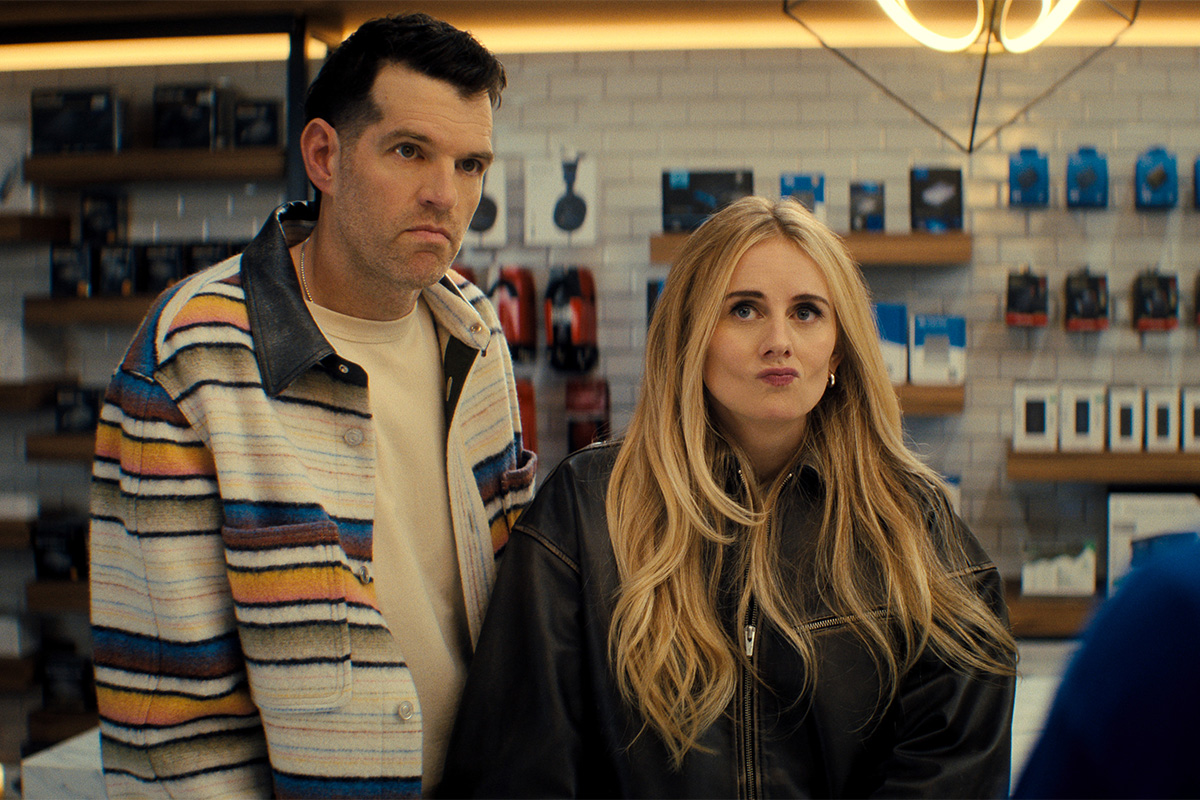
Claim #47: Batya is a Hebrew name.
Context: Lynn chooses Batya to be her Hebrew name before starting conversion classes.
Verdict: It is! Batya means “Daughter of God” in biblical/rabbinic Hebrew. It is also accurate that a Jewish conversion student would pick a Hebrew name for themselves.
Claim #48: A typical Jewish conversion takes about a year.
Context: Noah tells Lynn during their meeting that that’s about how long her process will take. (Cami then jokes that Temple Ahava offers “a loose conversion” option of about six months.)
Verdict: It depends on what denomination a person is converting to and what synagogue and/or rabbi they’re working with. Based on research, it seems that a conversion should take at minimum a full Jewish year, so a conversion student can go through each Jewish holiday and really genuinely study Judaism and its rituals.
Claim #49: The lulav and etrog are the two items waved around on Sukkot.
Context: Lynn tells Noah and Cami that she’s been studying Judaism already, and asks them to test her. Cami asks what items are waved on Sukkot.
Verdict: You go, Lynn! Yes, that is correct. The lulav is a palm branch which is attached to willow and myrtle branches. (Colloquially, the entire conjoined item is referred to as a lulav. Though hadas means myrtle and arava means willow.) And the etrog is a citron fruit. Together, all four species are known as “arba minim” and they are shaken together to commemorate the harvest in Eretz Yisrael, the Land of Israel.
Claim #50: Moses’ wife is named Tzipporah, also known as Sephora.
Context: Noah then quizzes Lynn with a question of his own, asking for the name of Moses’ wife.
Verdict: Close, Lynn! Tzipporah is indeed the name of Moses wife. However, she is not also known as Sephora, which was then inspiration for the cosmetic store Sephora. Sephora comes from a blending of the Greek word for beauty “sephos” and Tzipporah’s name.
Claim #51: Judaism encourages argument and examining an issue from all sides.
Context: Noah says this to Joanne when they debrief about Gabe Kaplan’s counseling session.
Verdict: True! There is a long history of debate and questioning in Judaism. One of the most prominent examples of this is the Talmud, in which sages of Jewish wisdom are chronicled discussing and arguing over their interpretations of Torah.
Episode 9 (Crossroads)
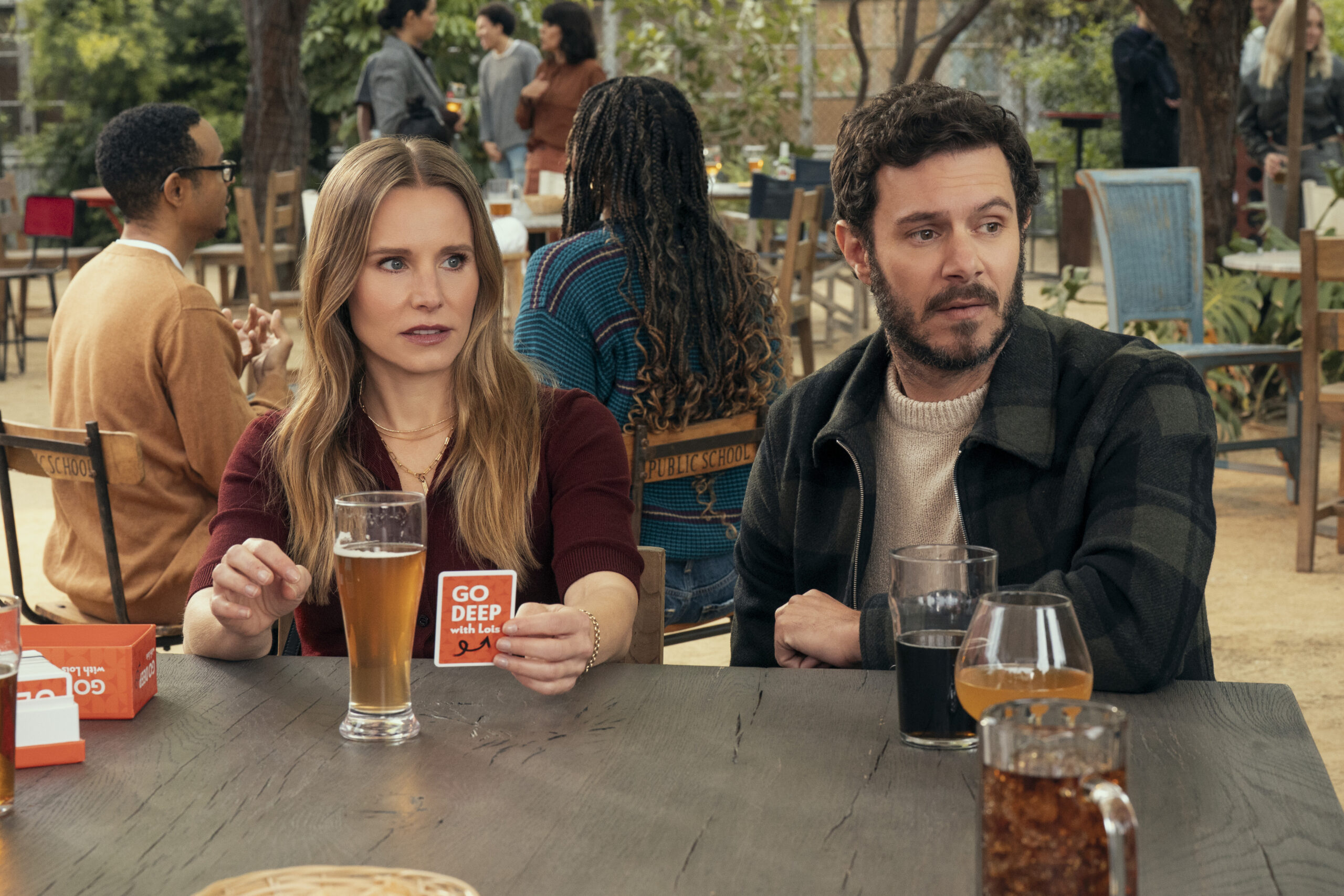
Once again, there is nothing Jewish to fact-check in this episode!
Episode 10 (When Noah Met Joanne)

Claim #52: Kugel is a Jewish dish.
Context: Joanne’s dad compliments the kugel at Morgan’s engagement party, asking what it is and likening it to “a delicious noodle birthday cake.”
Verdict: Kugel is indeed an Ashkenazi Jewish dish made with noodles. There are different variations of kugel, however. There is noodle kugel, potato kugel, matzah kugel, carrot kugel and more. It can be sweet or savory.
Claim #53: The Jewish concept of “ayin tovah” means to look at your partner with a good eye.
Context: After Lynn coaches Morgan to break-up with Dr. Andy, Joanne tells Noah about her speech. Noah says that it reflects the value of ayin tovah.
Verdict: This is true. “Ayin tovah” literally means “good eye.” It comes from a passage in Pirkei Avot, which suggests that we all judge one another favorably. It can refer to one’s partner, but can also just be general.
Claim #54: Jews are superstitious.
Context: After Noah breaks up with Joanne, she tells Esther that things are over between them. “Like, I’m really going to miss Shabbat,” Joanne cries. “And I love being superstitious.”
Verdict: Generally speaking, yes, Jews are a superstitious bunch. See Claim #29 for more.
Claim #55: Jews are warm, cozy and funny. They love to chat about everything, overshare and get in everyone’s business. They are also obsessed with their families, even though said families are crazy. Jews also tend to eat challah before they’re supposed to.
Context: Esther proceeds to give Joanne a pep talk, saying that she already feels Jewish to her. Some examples she includes of things that Joanne does that feel Jewish are above. She also says that Joanne is a kibitzer (meaning she loves to chat and offer advice) and a yenta (a gossip or busybody).
Verdict: So, none of these qualities are specifically Jewish, besides the challah mention. However, stereotypes of Jews do suggest that we are funny, family-oriented, loud and in each other’s business.
Claim #56: Being Jewish is a feeling.
Context: Esther suggests to Joanne that she’s Jewish, with or without Noah. “The whole thing is just a feeling,” Esther says. “And enjoying all those little things is the feeling.”
Verdict: I’m sorry to come off as an unfun hag, but I disagree! One can absolutely feel Jewish. But being Jewish relies upon being born into the Jewish community or converting and observing a Jewish religious, ritual and/or cultural practice.
Final Thoughts
Welp, there you have it! Overall, I’d say that I’m a bit disappointed in season two. While the majority of the show’s claims about Judaism and Jewish culture are true, there are also more noticeable mistakes, generalizations and extrapolations than last season. In terms of accuracy, I give it 3 out of 5 hot rabbis.


